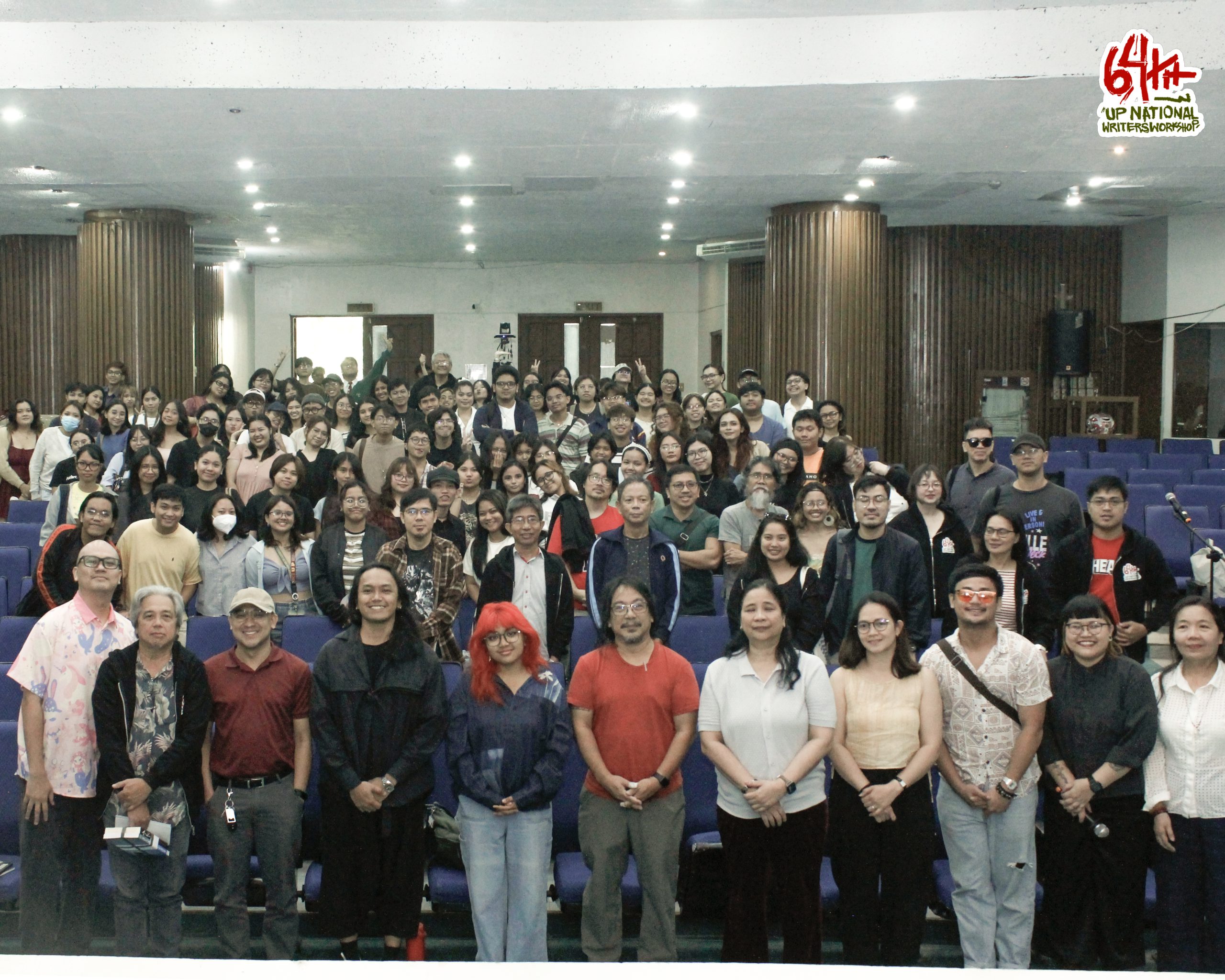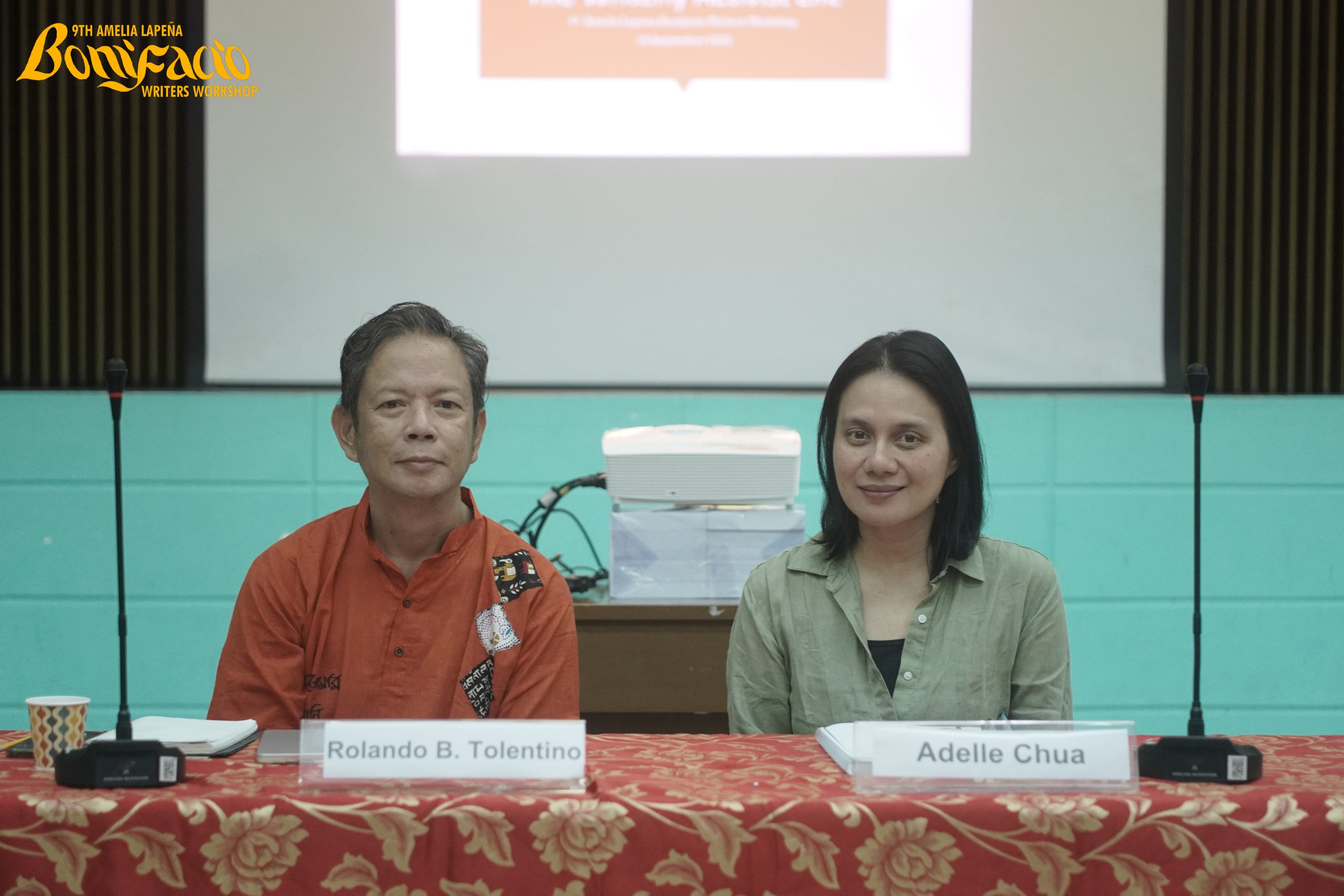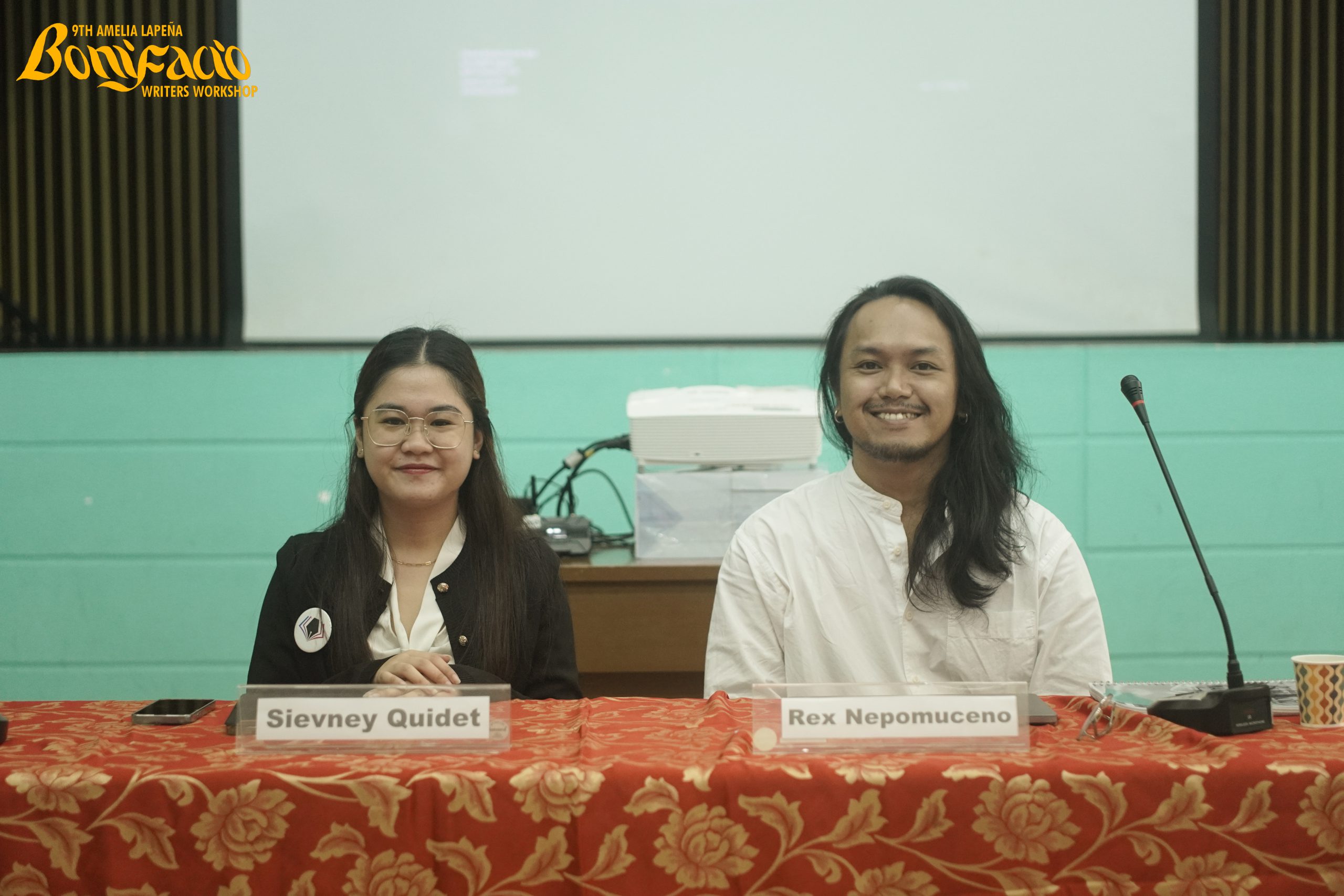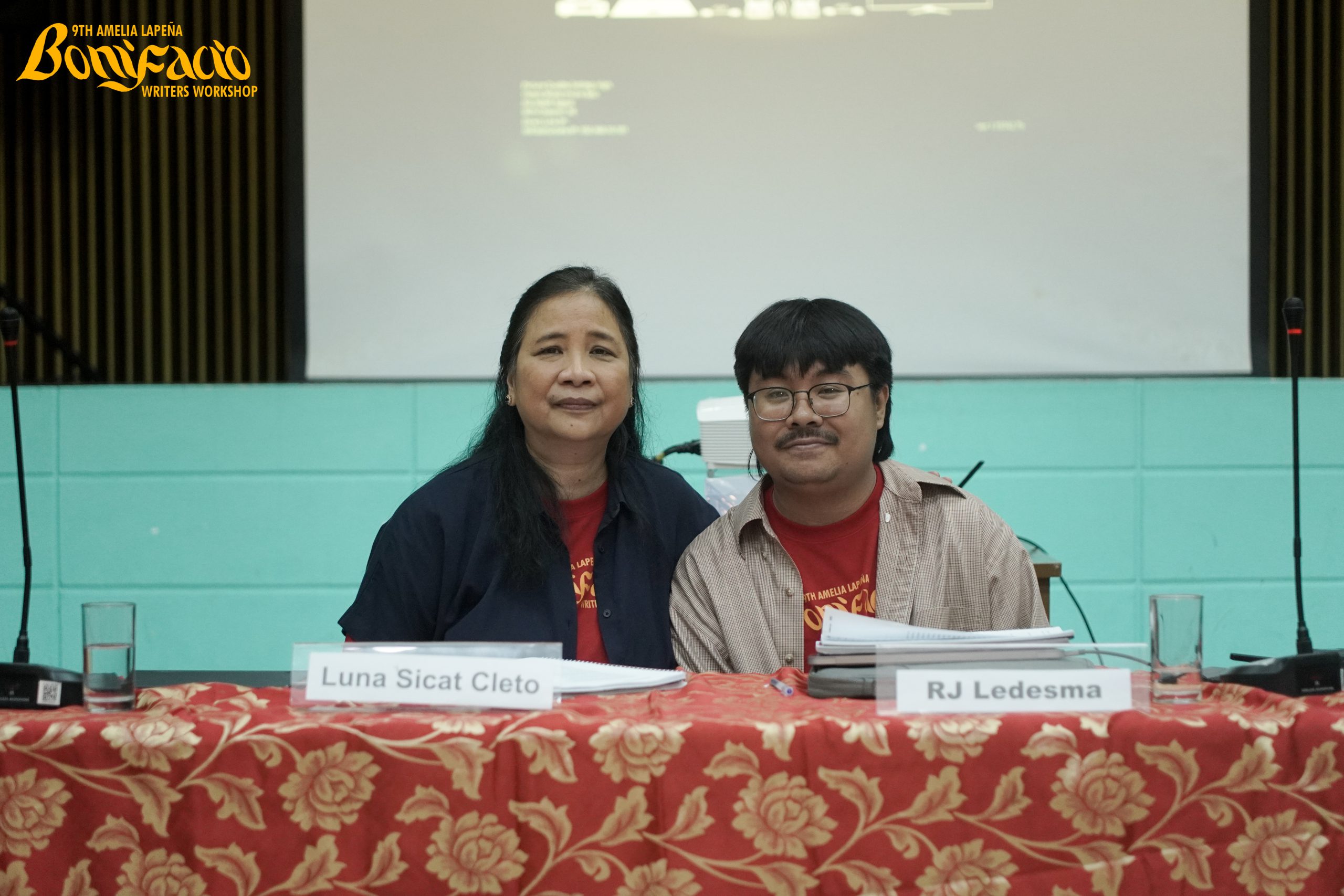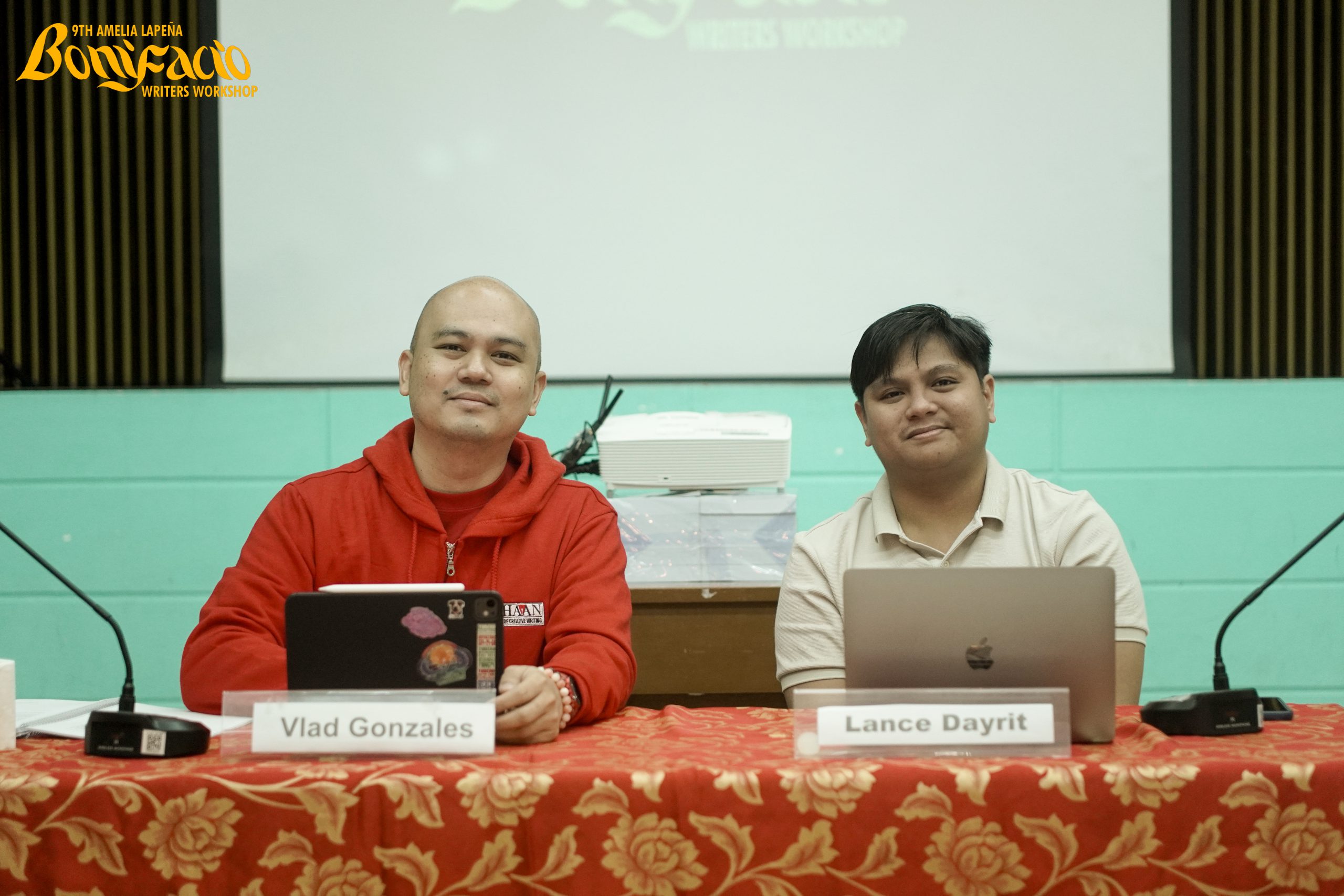Workshop director Dr. Ramon Guillermo opened with reframing the concept of the extension lecture through Brazilian theorist Paulo Friere’s “Extension or Communication?”, which described the former as staunchly unilateral and perhaps harmful in its imposition. To counter this, he highlighted the event’s theme of literature and solidarity, hoping for proactive audience participation.
Lecture 1 – Pag-asa, Pakikiisa at Haraya: Kung Bakit Pambata ang Panitikang Pambata
Will Ortiz
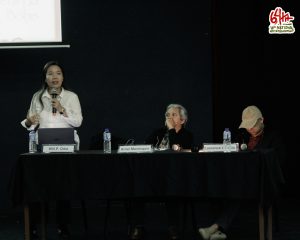
After sharing an excerpt from Merlinda Bobis’ Banana Heart Summer, Dr. Ortiz pointed out how the review aggregator site Goodreads has branded the novel as simultaneously “coming of age,” “Young Adult,” and “adult fiction”—drawing attention to the general public’s confused and often murky understanding of what is and isn’t children’s literature. One widespread notion she wishes to dispel is that a work of fiction is children’s literature simply because its main protagonists are children.
Dr. Ortiz proceeded to demonstrate how children’s literature can take on even mature or explicit issues, citing Rogelio Sikat’s “Impeng Negro” (bullying and violent retaliation), Mon Sy’s Si Laleng at ang Lakbay-Paaralan (struggles of marginalized communities), Nathi Ngubane’s From the River to the Sea: A Colouring Book (historical injustices) as positive examples. In approaching such heavy themes, it is imperative that children’s stories also endow its readers with a sense of empowerment and agency.
To Dr. Ortiz, writers of children’s literature must possess political awareness and their own advocacies, with the caveat that their work must be nutrive rather than instructive. It is not enough to simply mirror real-life conflicts or struggle, one must also exercise their creative faculties in looking towards freedom, a path out of victimhood—“Kapag nagpakita ka ng batang gutom, sa dulo dapat siya ay makakain.”
Lecture 2 – Ang Pilipinong Manunulat at ang Kabuluhan ng Poetika
Arnel Mardoquio
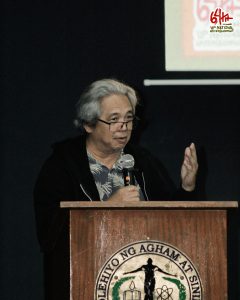
Instead of developing his craft inside the academe or other such institutions, Mr. Mardoquio’s artistic sensibilities were molded by his immersion in peasant, working-class, indigenous and marginalized communities. He recounted his experiences in cultural work in Southern Mindanao, in community theater that was improvisational and impromptu in nature (“…picket line at ang mass mobilizations ang aming big productions.”) This form of “expansion work,” or the propagation of revolutionary ideas, is deeply rooted in social investigation—rigorous research into the economic-political-social status of the community or locale.
These experiences endowed Mr. Mardoquio with the realization that one does not simply stumble upon creativity and artistic insight; rather, these qualities are formed through direct involvement in mass struggle. Despite having received no formal instruction, he professed to an intuitive understanding of dialectics in content and form in the works of Ibsen, Chekhov, and Brecht. To end his lecture, he reiterated his belief in the impossibility of art that is apolitical, quoting Rody Vera’s and Alan Glinoga’s Oratoryo ng Bayan: “Karapatan ng bayan kalagin ang tanikalang hampas ng dayuhan, karapatan ng bayan ang maghimagsik at lumaban…”
Lecture 3 – Panitikan at Pakikiisa: Ilang muni at suri
Laurence Marvin S. Castillo
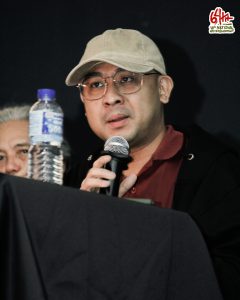
Dr. Castillo opened his lecture by first establishing what he perceives as the counter-insurgent cultural politics of our time, citing how Filipino writer-activists have been martyred (Kerima Tariman, Ericson Acosta) or wrongfully detained (Amanda Echanis, Frenchie Cumpio) and instances of state censorship such as the KWF’s (Komisyon sa Wikang Filipino) banning of five books in 2022 due to their “subversive” quality.
While institutionalized or commercial structures in literature possess obvious limitations in their liberating potential, Dr. Castillo conceded that engagement with such spheres is to some extent, necessary. One must look for “tactical openings” for radical and progressive ideas. Examples of such opportunities include anthologizing (eg. We are all Palestinians: An Anthology in Solidarity with the People of Palestine), translation, and tackling marginalized or radical works inside academe.
Lastly, Dr. Castillo listed a few examples of how literature can practice community and solidarity: articulation of our experiences of violence and oppression, the establishment of counter-public spheres which directly challenges dominant ideologies and infrastructure, and “…paghimok sa pagkilos sa labas ng panulat.”
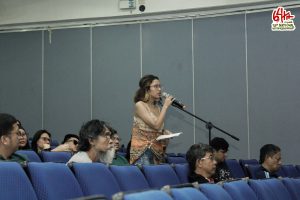
Open Forum
One of the attendees asked Mr. Mardoquio how one can go about telling stories of the Lumad and other indigenous communities in a respectful manner, without it being extractive or exploitative. In response, Mardoquio stressed the importance of both research and consent: one must first immerse in such communities, gain acceptance, and ensure that the relationship is one of equal exchange—mutually beneficial for both parties.
Another question, posed to Dr. Castillo, concerned how writers might use social media as a productive avenue for one’s observations and analyses. Dr. Castillo responded that one must keep in mind that social media is a space with its own dangers and limitations (eg. disinformation, trolling, ragebaiting), demanding of the writer a special rigor due to its visibility and potential virality.
One of the final questions posed by the attendees was addressed to Dr. Ortiz: how can children’s literature tackle sensitive issues such as sexual abuse? In tackling explicit themes regarding the body, Dr. Ortiz agreed with the questioner’s stand against excessive metaphor or euphemism. She also cautioned against depictions of such issues that titillate or obscure.
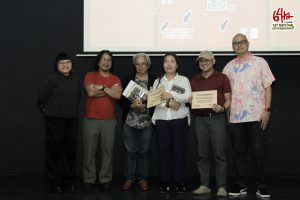
After the awarding of certificates, Likhaan: UP ICW director Vladimier Gonzales closed the extension lectures with expressing his gratitude towards the attendees, lecturers, moderator Rachel D. Katimbang, and the UPLB Office for Initiatives in Culture and the Arts and the Department of Humanities.

